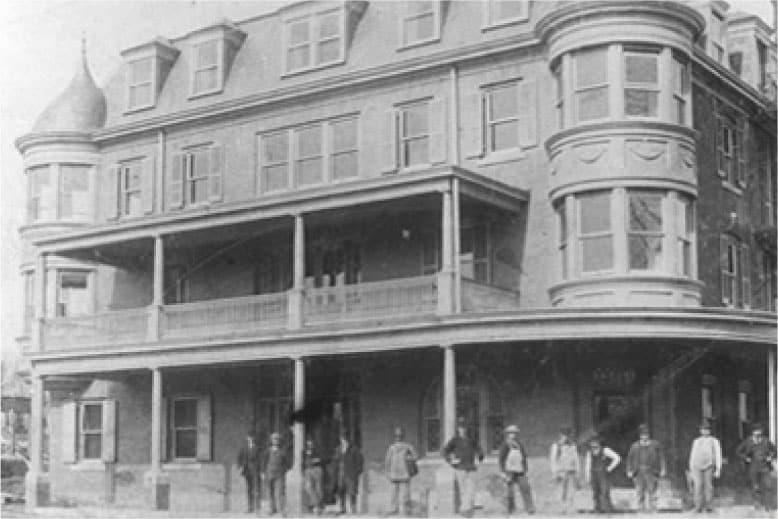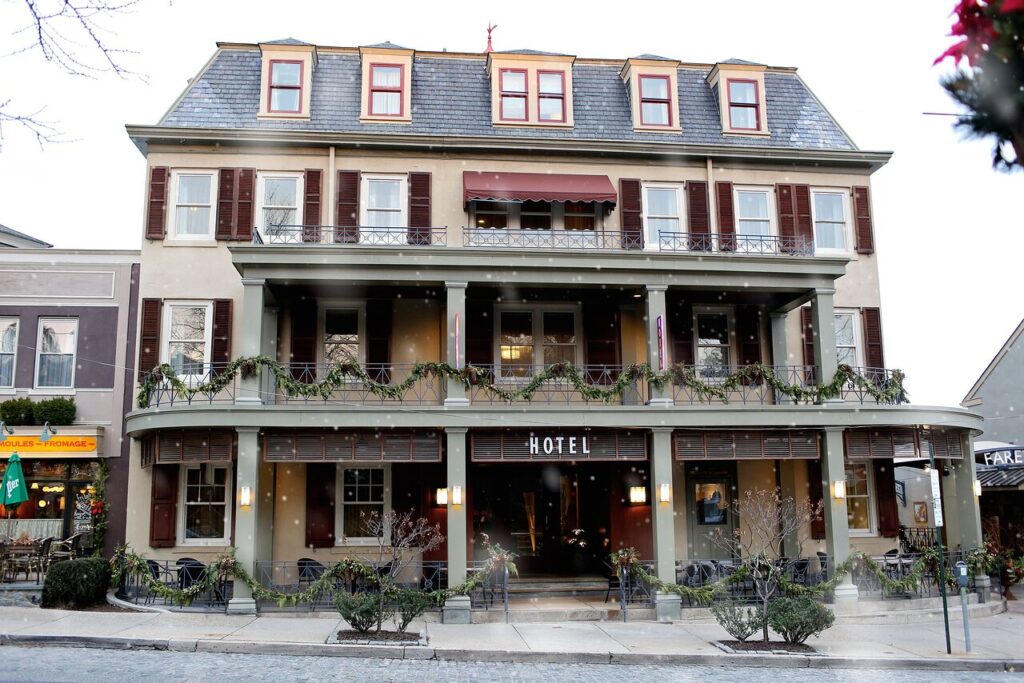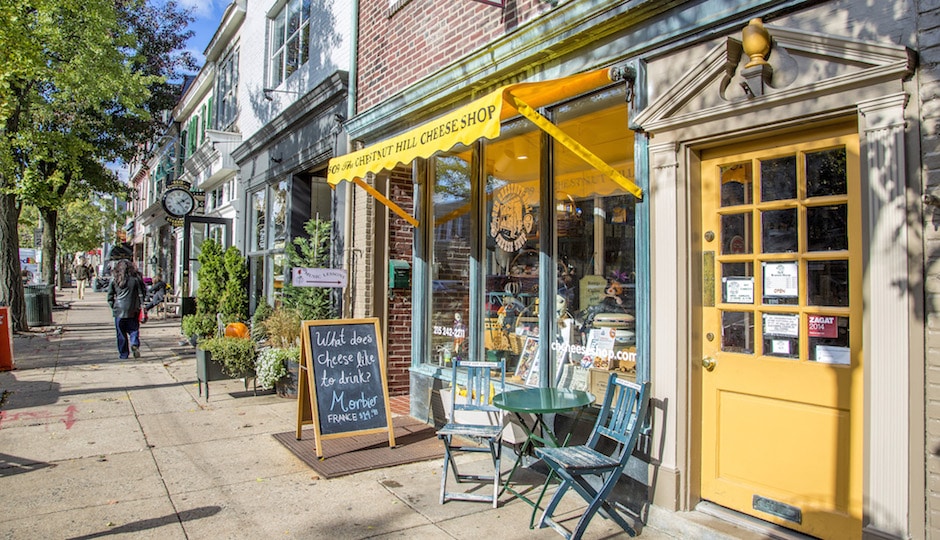Chestnut Hill in Philadelphia
Chestnut Hill, a quaint neighborhood located in the Northwest section of Philadelphia, is renowned for its affluent residents, high-value real estate, and prestigious private schools. Positioned within the 19118 ZIP Code, Chestnut Hill’s boundaries include Northwestern Avenue, Wissahickon Gorge, Stenton Avenue, and the Cresheim Valley.
A Closer Look at Chestnut Hill’s History
The origins of Chestnut Hill can be traced back to the German Township, a settlement laid out by Francis Daniel Pastorius and encompassing Sommerhausen and Crefeld, along with a part of Cresheim. In the late 18th century, during the American Revolutionary War era, the area served as a summer vacation spot due to its elevation and cooler temperatures than Center City.
In 1854, Chestnut Hill became part of the City of Philadelphia under the Act of Consolidation. The same year, the Chestnut Hill Railroad opened, providing an easy commute to and from Center City. A second railway line was added in 1884 by the Philadelphia, Germantown and Chestnut Hill Railroad.
During the American Civil War, Chestnut Hill was home to Mower U.S. Army General Hospital, constructed to serve Union army soldiers. From the mid-19th century through the mid-20th, the neighborhood was a “railroad suburb” and a “streetcar suburb” of Center City. It was part of Philadelphia, but it was a leafy outlying part functioning as a bedroom community.
In 1985, the neighborhood was designated as the Chestnut Hill Historic District by the National Register of Historic Places. The American Planning Association has recognized it among its Great Places in America for its natural resources, architectural character, and thoughtful planning.
The Beauty of Chestnut Hill’s Architecture
Chestnut Hill boasts a wide variety of 19th and early 20th century residential buildings designed by many of the most prominent Philadelphia architects. Several properties in the area are listed on the National Register of Historic Places, including Anglecot, Druim Moir Historic District, Graver’s Lane Station, John Story Jenks School, Thomas Mill Bridge, Wissahickon Inn, and the Margaret Esherick House.
Other historic and notable properties include the George Howe House, Inglewood Cottage, Esherick House, and the Vanna Venturi House. These architectural gems contribute significantly to the neighborhood’s character and charm.

Chestnut Hill’s Public Transportation System
Southeastern Pennsylvania’s mass transit authority, SEPTA, provides public transportation in the area. Two SEPTA Regional Rail commuter train lines serve Chestnut Hill: the Chestnut Hill East Line and Chestnut Hill West Line. Additionally, SEPTA bus routes 23, 77, 94, and 97 serve the neighborhood.
Until the mid-20th century, the neighborhood was also served by trolleys, with trolley service beginning in 1894. Although regular trolley service was “temporarily suspended” in 1992, some infrastructure remains, and there have been discussions about reinstating this service.
Education in Chestnut Hill
The residents of Chestnut Hill have access to both public and private education. Students in grades K-8 are zoned to John Story Jenks School, while high school students are zoned to Roxborough High School.
The area is also home to several private schools, including the Pre-K-12 Springside Chestnut Hill Academy, The Crefeld School, and the K-8 Norwood-Fontbonne Academy.
Public Libraries
The Free Library of Philadelphia operates the Chestnut Hill Branch, providing residents with access to a wide variety of books and other resources.
Parks, Arboretums, and Recreation in Chestnut Hill
The neighborhood has a wealth of natural beauty, with attractions like the Morris Arboretum of the University of Pennsylvania, Pastorius Park, and the Wissahickon Valley Park of the Fairmount Park system. These spaces offer opportunities for outdoor recreation and exploration, with hidden trails, rippling waters, and stunning natural treasures.

Major Annual Events in Chestnut Hill
The neighborhood hosts several major events each year, transforming Germantown Avenue into festival central. The Home & Garden Festival and the Fall for the Arts Festival are two of the most popular events, bringing together merchants, live entertainment, artisans, and food vendors.
Discovering Chestnut Hill’s Main Street: Germantown Avenue
The heart of Chestnut Hill is Germantown Avenue, a vibrant street lined with shops, galleries, boutiques, home furnishings stores, and restaurants. The Avenue’s cobblestone streets and historic facades add to its picturesque charm.
One of the Avenue’s must-see spots is the iconic William A. Kilian Hardware Co., an owner-operated hardware store that has been a fixture in the community for decades. For food lovers, Evergreen Cheese is a haven of gourmet foods and hard-to-find cheeses. Upscale consignment shops like Greene Street attract fashionistas with stylish threads.
In The Neighborhood: Unexpected Delights
The area is full of unexpected delights. The Skyspace, a permanent light installation by renowned artist James Turrell in the Chestnut Hill Friends Quaker meetinghouse, is open for sunrise and sunset viewings. The Stagecrafters Theater offers professional stage productions in an intimate setting, while the Wissahickon Skating Club welcomes hockey and freestyle skaters of all ages and abilities.
Chestnut Hill’s charm lies in its perfect blend of history, culture, nature, and community. It is a neighborhood that has something for everyone, making it a must-visit destination when in Philadelphia.
Notable Residents
Over the years, the neighborhood has been home to several notable individuals, including R. Tucker Abbott, a malacologist and author; Willie Anderson, a golfer who won four U.S. Opens; E. Digby Baltzell, an author and sociologist; and James Bond, an ornithologist who was the namesake of Ian Fleming’s fictional secret agent.
Other notable residents include Joseph S. Clark, a former U.S. senator from Pennsylvania and former mayor of Philadelphia; Richardson Dilworth, a former mayor of Philadelphia; Melissa Fitzgerald, an actress; and Witold Rybczynski, an architect and urban policy scholar.
Chestnut Hill offers a blend of history, culture, and natural beauty that is unmatched. Whether you’re exploring its historic architecture, shopping on Germantown Avenue, or enjoying one of its many festivals, you’re sure to fall in love with this charming Philadelphia neighborhood.
